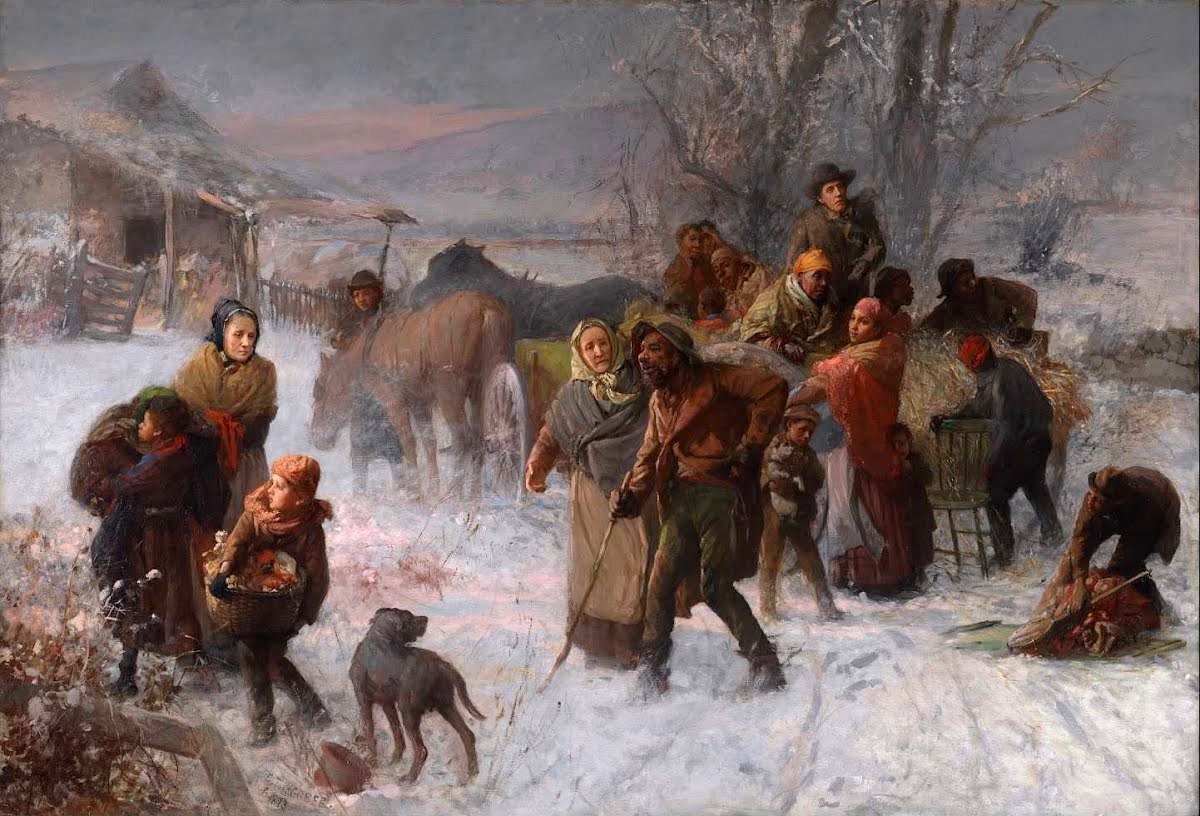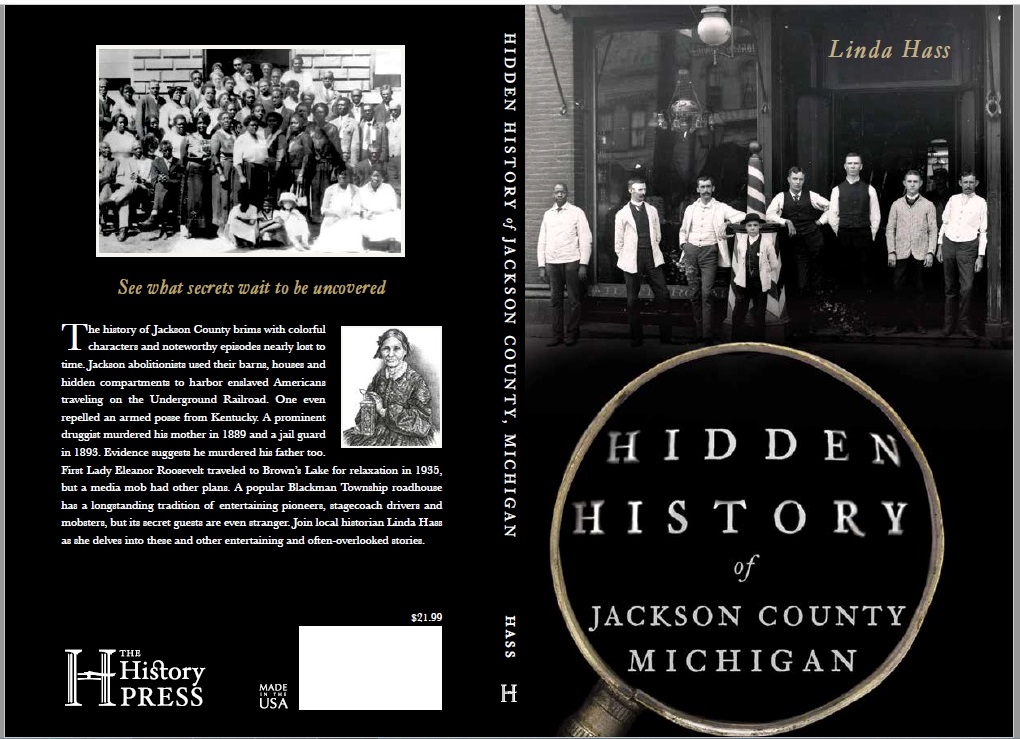Read All
About It
Michigan's Crossroads to Freedom:
The Underground Railroad in Jackson County
Presents an overview of Jackson’s unique role in the secret system that assisted enslaved Americans as they sought to escape to free soil. It gives a sampling of local activists and general information on the national movement. The book, published by Booklocker in 2017, won a national award in the category of “History” from the National Federation of Press Women.
Hidden In Plain Sight:
The Underground Railroad in Jackson County
Takes an in-depth look at the dramas and personalities involved in Jackson’s network as well as participants’ methods for staying “under cover.” Subjects include a freedom seeker whose attempted recapture sparked a confrontation and a resilient editor whose office was firebombed. The book, published by Booklocker in 2018, won a regional award in the category of “History” from the National Federation of Press Women.
The Hidden History of Jackson County
This book presents stories that uncover the “hidden” aspects of Jackson’s general history, including ordinary people who faced extraordinary challenges and extraordinary people who fell from grace. Readers will be introduced to unsung heroes, colorful characters , scandals and schemes and landmarks with intriguing backstories. The Hidden History of Jackson County, published by History Press in 2020, won a national award in the category of “History” from the National Federation of Press Women.

My interest in the Underground Railroad was sparked in 2015 when two acquaintances challenged me to write a story about Jackson’s role in the secret system that transported freedom seekers from slave states in the South to free states in the North and Canada. I knew such a story was possible because, during research for a master’s thesis in journalism, I discovered a Jackson editor who wrote that as a boy he often drove his father’s lumber wagon with a “load of slaves” hidden in the back. I never followed the Underground Railroad angle, since it didn’t fit my focus, but on dark nights when stars illuminated my imagination, the idea glowed with possibility. Did freedom seekers use those same stars to travel north to Jackson and were they assisted by Jacksonians? If so, who were these brave individuals and what were their personal stories?
My quest to answer these questions began in earnest when I was told there wasn’t enough proof to support Jackson’s role in the system. The gauntlet had been thrown down. Was there really nothing to find? The hunt was on. Over the years, the evidence has astounded me, from the anti-slavery editor whose newspaper office was fire bombed to local abolitionists who clashed with a demanding plantation owner. Another significant finding was that Jackson–not Ann Arbor or Detroit–was the birthplace of the first abolitionist newspaper in the state of Michigan.
True, these findings pertain to people and events long gone, but their message still speaks to us today. Their examples remind us that faith, bravery and commitment can overcome obstacles and that reconciliation is always possible. May you be inspired as you explore the many facets of the Underground Railroad in Jackson.


